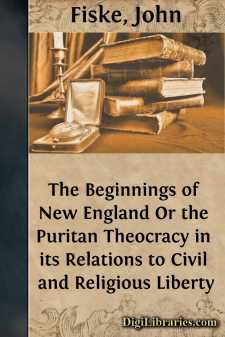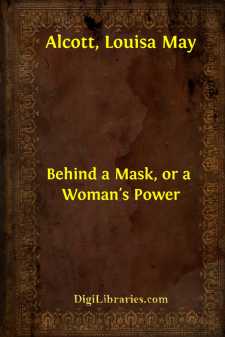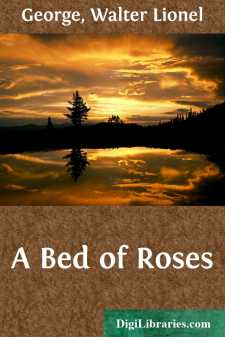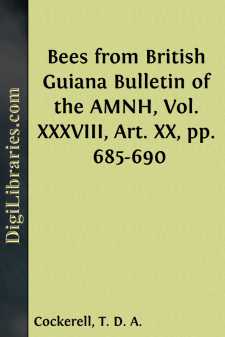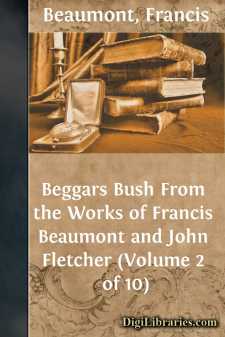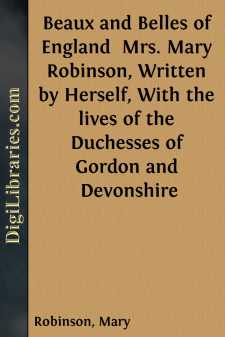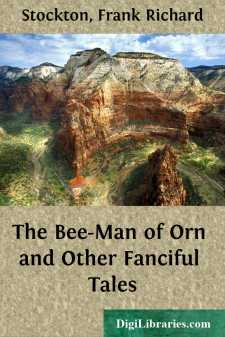Fiction
- Action & Adventure 180
- Biographical 15
- Christian 59
- Classics 6965
- Coming of Age 5
- Contemporary Women 3
- Erotica 8
- Espionage/Intrigue 12
- Fairy Tales, Folklore & Mythology 236
- Family Life 169
- Fantasy 117
- Gay 1
- General 596
- Ghost 32
- Historical 808
- Horror 43
- Humorous 160
- Jewish 25
- Legal 4
- Medical 22
- Mystery & Detective 315
- Political 49
- Psychological 41
- Religious 64
- Romance 159
- Sagas 11
- Science Fiction 730
- Sea Stories 113
- Short Stories (single author) 537
- Sports 10
- Suspense 1
- Technological 8
- Thrillers 2
- Urban Life 31
- Visionary & Metaphysical 1
- War & Military 173
- Westerns 199
Fiction Books
Sort by:
by:
John Fiske
CHAPTER I. THE ROMAN IDEA AND THE ENGLISH IDEA. It used to be the fashion of historians, looking superficially at the facts presented in chronicles and tables of dates, without analyzing and comparing vast groups of facts distributed through centuries, or even suspecting the need for such analysis and comparison, to assign the date 476 A.D. as the moment at which the Roman Empire came to an end. It was...
more...
JEAN MUIR "Has she come?" "No, Mamma, not yet." "I wish it were well over. The thought of it worries and excites me. A cushion for my back, Bella." And poor, peevish Mrs. Coventry sank into an easy chair with a nervous sigh and the air of a martyr, while her pretty daughter hovered about her with affectionate solicitude. "Who are they talking of, Lucia?" asked the...
more...
CHAPTER I 'We go.' The lascar meditatively pressed his face, brown and begrimed with coal dust, streaked here and there with sweat, against the rope which formed the rough bulwark. His dark eyes were fixed on the shore near by, between which and the ship's side the water quivered quicker and quicker in little ripples, each ripple carrying an iridescent film of grey ooze. Without joy or...
more...
by:
E. G. B. Moss
CHAPTER I. SHELLS AND THEIR INMATES. Before the study of shellfish, or molluscs, was conducted on the scientific principles of the present day, shells were classified as univalves, bivalves, and multivalves. The univalves were shells in one piece, such as the whelk; the bivalves those in two pieces, such as the mussel or oyster; and the multivalves those in more than two pieces, such as barnacles or...
more...
In connection with the work of the Tropical Research Station of the New York Zoological Society, conducted by Mr. William Beebe, collections of insects, including bees, were made. The present report deals with a series of bees from the Bartica District, and Mr. John Tee Van, in forwarding them, states that "almost all of these bees were procured about a clump of several species of nightshades...
more...
CHAPTER I.AN OLD BEE HUNTER. The bee hunters in my early days used one of two methods in hunting the bee. The hunter would select a clear day, generally during buckwheat bloom, and after determining on a course, sun them to the tree. This was done by placing the hat or hand between the eye and sun as close to the light as the eye would permit. If the hunter knew the difference between the flight of a...
more...
by:
Joseph Samachson
She awoke, and didn't even wonder where she was. First there were feelings—a feeling of existence, a sense of still being alive when she should be dead, an awareness of pain that made her body its playground. After that, there came a thought. It was a simple thought, and her mind blurted it out before she could stop it: Oh, God, now I won't even be plain any more. I'll be ugly. The...
more...
by:
Francis Beaumont
ACTUS PRIMUS. SCENA PRIMA. Enter a Merchant and Herman. Mer. Is he then taken? Her. And brought back even now, Sir. Mer. He was not in disgrace? Her. No man more lov'd, Nor more deserv'd it, being the only man That durst be honest in this Court. Mer. IndeedWe have heard abroad, Sir, that the State hath sufferedA great change, since the Countesses death. Her. It hath, Sir. Mer. My five years...
more...
by:
Mary Robinson
The author of these memoirs, Mary Robinson, was one of the most prominent and eminently beautiful women of her day. From the description she furnishes of her personal appearance, we gather that her complexion was dark, her eyes large, her features expressive of melancholy; and this verbal sketch corresponds with her portrait, which presents a face at once grave, refined, and charming. Her beauty,...
more...
THE BEE-MAN OF ORN. In the ancient country of Orn, there lived an old man who was called the Bee-man, because his whole time was spent in the company of bees. He lived in a small hut, which was nothing more than an immense bee-hive, for these little creatures had built their honeycombs in every corner of the one room it contained, on the shelves, under the little table, all about the rough bench on...
more...


